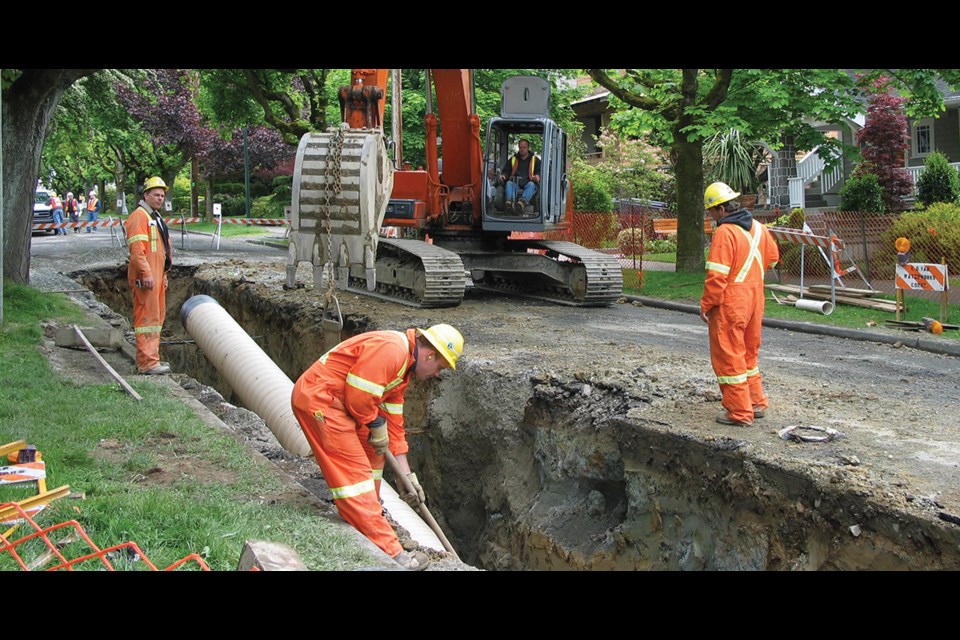Aging and poorly engineered or maintained sewers in the Lower Mainland are increasingly at risk of overflowing with raw sewage due to increased demand and more intense rainstorms, according to Metro Vancouver regional government engineers.
The problem of “sanitary sewer overflows” has thus prompted Metro Vancouver to ask the region’s cities to plan accordingly for upgrades, or else face a combined $2-billion bill within the next 20 years to build 20 runoff tanks.
But not all the cities initially agreed on what exactly must be done about the problem. Each city has its own unique circumstance: Vancouver and New Westminster’s pipes are older, for example; North Shore municipalities get much more rain than others; and Delta and Richmond have to deal with more groundwater leaks.
At issue, specifically, is greater demand on sewers from a growing population plus more intense storms, otherwise known as atmospheric rivers, over the past decade. Compounding matters is an aging system of pipes that sees water runoff and groundwater leaks into the sewers. Even worse, some cities, such as Vancouver, have combined sewer and storm systems.
All these factors mean without fixing leaks and infiltration, the region is likely to be faced with sewer overflows, according to a Jan. 30 report to Metro Vancouver’s liquid waste committee.
Sewer overflows “increase risks to human and environmental health as well as the collective reputation of public utility management,” stated planning director Paul Kadota.
Sewer overflows must be reported under federal law, Kadota notes.
Metro Vancouver’s board of directors passed a “wet weather pricing” scheme on Feb. 24, that sees each city pay an annual fee for upgrades. Vancouver will be spending about $87 million annually, Surrey will spend $57 million and Richmond and Burnaby will spend $29 million each.
Metro Vancouver says without the annual upgrades 20 overflow tanks would need to be built across the region to prevent the overflows.



